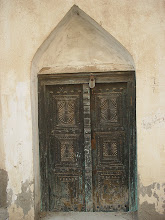There’s nothing that will knock you off your high horse quite like a spot of proofreading. A section of a colleague’s doctoral thesis has been sitting on my desk for an amount of time that is about to become critically embarrassing, and I simply had to start tackling it this evening. There is a reason why I had procrastinated! Not a walk in the park at the best of times, academic texts develop a life of their own when their fate is in your hands. The pages teem with pernickety little things that tug at the seams of your consciousness… a malapropism here, a stray preposition there, a phantom faux ami everywhere. Suffice it to say that there is no longer a film of dust on my dictionary.
It’s a funny thing, the English-speaking hierarchy. Whose language is it anyway? In his book The Struggle to Teach English as an International Language (OUP 2005), Adrian Holliday identifies two streams of English speakers: BANA (those from Britain, Australasia and North America) and TESEP (those who are taught English in Tertiary, Secondary and Primary School). Robert Phillipson, in turn, distinguishes between “core” and “periphery” circles, which respectively represent the haves and have-nots of the English language. The most nuanced picture is painted by Braj Kachru, who proposes an “inner circle”, representing the traditionally English-speaking developed world, the “outer” circle, representing the former English colonies, and the “expanding” circle”, representing, well, everybody else.
This gives us a nice little multi-faceted paradigm for a spot of good, old-fashioned pigeonholing. Let’s see where my students, my thesis-writing colleague and, of course, I, fit onto all this.
What all this means, is that my TESEP, outer/expanding circle colleague whose third language is English, is depending on TESEP/Inner/Core-or-maybe-periphery me, whose second language is English, to ensure that his writing will be palatable within the BANA/Inner/Core inner sanctum of his international university.
No wonder I am using my dictionary.
Subscribe to:
Post Comments (Atom)


No comments:
Post a Comment